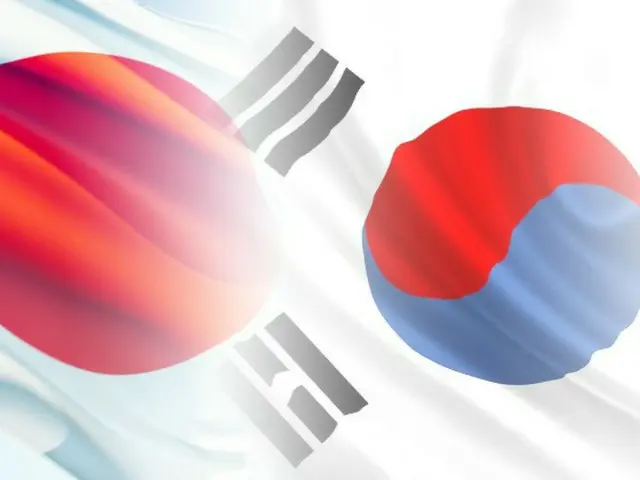The seeds of conflict remain over this issue. In an editorial published on the same day, the Asahi Shimbun said, "How do we move forward into the future? First of all, we must get to know our neighbors' present, which is built on the accumulation of the past. The foundation for opening up the next generation is mutual respect.
On the 15th, South Korean news agency Yonhap News said in an article on Stream that "Japan is a reliable ally of South Korea, but at times it shows the appearance of an unrepentant perpetrator, and
"The expression 'a close yet distant country' still holds true when it comes to Japan," he said. After 14 years of negotiations, South Korea and Japan signed a basic treaty to establish diplomatic relations on June 22, 1965.
In addition to recognizing the Republic of Korea as the only legitimate government in Korea, the treaty and agreements concluded before August 22, 1910, when the Japan-Korea Annexation Treaty was signed, were deemed "no longer valid."
The Korea Claims Agreement was signed. In the agreement, Japan promised to provide a total of $500 million in economic cooperation funds to Korea, and the claims issue between the two countries was "completely and finally resolved."
The Park Chung-hee administration invested funds from Japan in infrastructure development and other areas, achieving rapid economic growth that came to be known as the "Han River Miracle."
Since the normalization of diplomatic relations between Japan and South Korea, their relations have repeatedly worsened and improved.
Relations between the two countries have improved dramatically since the normalization of diplomatic relations between Japan and South Korea, thanks in part to the efforts of former President Yoon Seok-yeol, who took office in May 2022.
Even now, 60 years after the establishment of the two countries, the relationship remains in good condition, and grassroots exchange activities are active not only in the political world but also in the business world and among the people of both countries.
Ahead of the 60th anniversary of the normalization of diplomatic relations between Japan and South Korea, a commemorative event was held at the Japanese Embassy in Seoul on the 16th of this month.
Approximately 1,000 people from the government and business sectors of both Japan and South Korea were invited to the event, including Special Advisor to the Prime Minister Akihisa Nagashima from the Japanese government and Second Vice Minister of Foreign Affairs Kim Jin-ah from the South Korean government. Ambassador Koichi Mizushima commented, "60
"As the year 2020 marks the 60th anniversary of the establishment of a new Japan-Korea relationship, we will join hands and move forward to a better future," President Lee Jae-myung said in his speech.
Lee was unable to attend the commemorative event due to the G7 summit, but sent a video message.
"I hope that the two countries will continue to strengthen their ties," he said, adding, "In the midst of the rapidly changing international situation, our two countries are important partners that should seek ways to respond together."
Lee has recently been inaugurated as the new Prime Minister. Until now, he has made many critical remarks about Japan, but he has advocated a "pragmatic diplomacy centered on national interests" and has recently put a stop to his "anti-Japanese" stance. At the G7 Summit, he met with Prime Minister Shigeru Ishiba.
"Although there are small differences and differences of opinion, I hope that we can overcome these differences and further develop a relationship that is mutually beneficial to both countries," he said at the first face-to-face summit.
On the 19th, an event celebrating the 60th anniversary was held in Tokyo, sponsored by the Korean Embassy in Japan. About 1,000 people from the political and business worlds participated. Prime Minister Ishiba also attended and said, "Japan and Korea are mutually beneficial partners.
"As our closest neighbors, we have built up a wide range of exchanges. We must continue to communicate closely so that the relationship between our two countries can develop in a stable manner," he said in his speech.
"Let's take a new step together toward the future," he said. Park Chul-hee, the South Korean ambassador to Japan, also said, "We must not neglect our efforts to further develop our current friendly relationship."
The two countries have been in good terms since the normalization of diplomatic relations 60 years ago, but there are still sources of conflict between the two countries, such as historical and territorial issues.
While showing enthusiasm for strengthening relations with Korea, he is not prepared to compromise on historical or territorial issues. In an article published on STREAM on the 15th, South Korea's Yonhap News Agency said, "In the 60 years since the establishment of diplomatic relations, the two countries have expanded the scope of cooperation.
"The two countries have become inseparable neighbors, despite the differences in their views," but added that "historical issues from the past have not been completely resolved, and the conflict continues to this day." The Asahi Shimbun also said in an editorial dated the 22nd that "in Japan-Korea relations,
The need for a "future-oriented" approach is discussed. This does not mean that we do not need to know the past, he pointed out, and added, "The past cannot be changed. But the future can be built with the wisdom and efforts of both sides."
"It is."
2025/06/23 13:40 KST
Copyrights(C)wowkorea.jp 5

